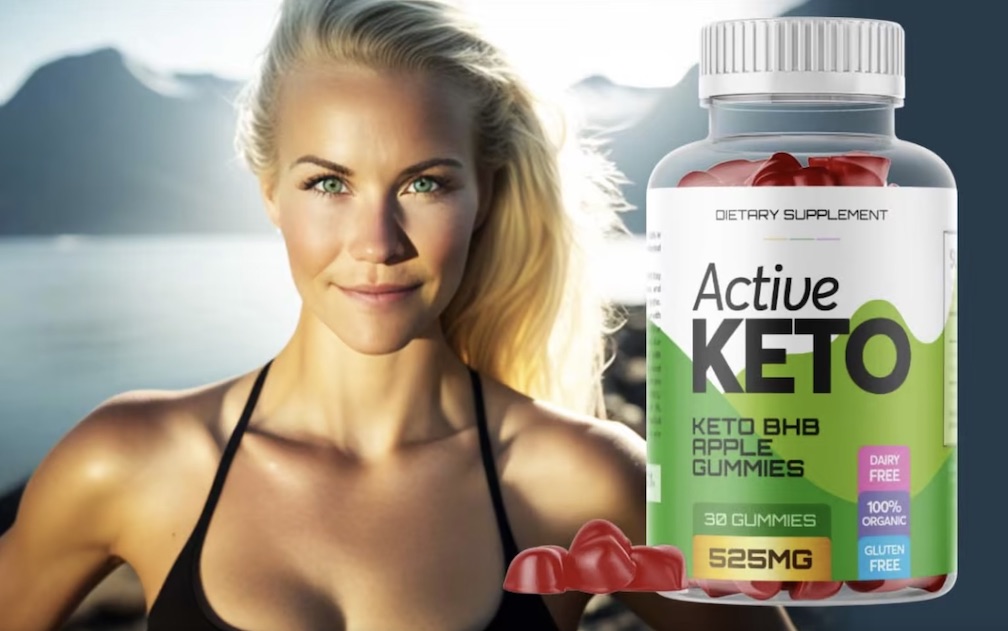How to Succeed in Your Keto Diet
- Written by The Southern Cross

A keto diet involves swapping out most carbs for fish, eggs, healthy fats, leafy greens and non-starchy vegetables; therefore it will require you to spend more time in the kitchen preparing meals that everyone in your household will love.
Consider making bunless burgers and salads with low-carb dressings, while increasing your fat consumption to stay full for longer and provide energy.
Suitable Supplements Like Active Keto Gummies
Utilizing appropriate supplements can support your efforts to reach ketosis more quickly. Of particular note are chromium, niacin, and magnesium as they play key roles. A good example for such a supplement that works through natural ingredients are Active Keto Gummies which have become popular in Australia and New Zealand in 2023.
Vitamin D supplements should also be included as deficiency can lead to bone pain and kidney problems. The best source is 15-20 minutes of sunshine daily as well as eating foods like fatty fish and dairy that provide sufficient vitamin D levels.
Crete monohydrate can also provide some assistance. As an amino acid, creatine helps build muscle mass while also improving athletic performance, increasing workout energy and helping people feel energised during workouts. Pills, liquid and gummy forms of creatine are available; for best results it is not advised that more than 40,000IU be taken at any one time as excessive dosage can cause calcium buildup in bones and kidneys.
Consider supplementing with MCTs as this can serve as an excellent keto fuel and help keep you feeling full and increase energy levels. In addition, look for one with L-Theanine; this amino acid aids concentration while relieving stress. Furthermore, it may even improve sleep quality at night! You can find such supplements at most health stores; some come in liquid or gummy form for easy consumption on-the-go.
The Right Nutrition
A keto diet limits carbohydrates, forcing your body to use fat instead of carbs as energy source and leading to weight loss, improved insulin sensitivity and healthier cholesterol and blood glucose levels - plus reduced risks of heart disease and cancer!
The keto diet requires you to eat plenty of healthy fats, enough protein, and limited carbs, along with sufficient fiber consumption in order to prevent constipation. Some individuals may find difficulty meeting their dietary needs on this restricted diet plan; if this is an issue for you, consult your physician or dietitian immediately.
At least 70% of your daily calories should come from fat, 10-15% from carbohydrates and 10% from protein. Water should also be drunk regularly to combat hunger and cravings; additionally, limit beverages like juice and soda and instead opt for low-sugar options like berries, yogurt or milk for your beverages.
The keto diet limits many nutrient-rich vegetables and fruits, so to compensate, targeted or cyclical ketogenic diets may be more suitable. Targeted ketogenic diets allow you to consume small amounts of fast digesting carbs before workouts while the latter gives one day each week where glycogen stores can be replenished - an invaluable strategy for athletes or bodybuilders looking to optimize performance.
5 Tips for Exercises
Regular exercise is essential to leading a healthy lifestyle, and keto can enhance fitness. But if your exercises on this diet seem ineffective or you experience low energy levels or slow weight loss, listen to what your body tells you: this could be a telltale sign that something's amiss with both workouts and diet. To address this problem, adjust your routine, eat more nutrient-rich foods or try adding in carbs before high intensity training to correct this imbalance.
Aerobic exercise (low-intensity steady-state cardio) is the optimal form of exercise on the keto diet, since your body uses fat for energy during these workouts - helping you to use more of it while keeping muscle mass intact. If you prefer lifting heavy weights or performing high-intensity cardio workouts instead, however, then supplementing your keto diet with carbs before these exercises might be necessary - try eating small amounts 30-60 minutes prior to starting these activities.
As your body uses glycogen stores to fuel workouts while staying in ketosis, protein consumption is vital to muscle building and recovery. Aim for at least 20-40 grams of protein at each meal without going beyond ketosis' threshold; alternatively you could adopt an intermittent fasting approach by only eating carbs during times when you exercise.
Stick to Your Diet Goals
The keto diet may be challenging for those unfamiliar with its low amount of carbohydrates. Your body has grown used to breaking down carbohydrates for energy and will have trouble processing fats instead. This may cause digestive issues as well as increased risks for heart disease; for this reason it's wise to first discuss it with a healthcare provider and monitor glucose levels carefully prior to undertaking this regimen.
When beginning the keto diet, it is advisable to start off slowly and work up. The initial two weeks can be particularly tough as your body adjusts from using glucose for energy to burning fats instead. Cravings and fatigue can occur, making meal prep essential in avoiding temptation and providing nutritious options when needed.
Limit starchy vegetables as they contain high levels of carbohydrates, and focus on eating nutrient-rich green leafy veggies as well as low-sugar fruits like berries, tomatoes and low-sugar tomatoes instead. Furthermore, avoid processed foods, sweetened drinks with sugar content such as honey or maple syrup as well as processed sweeteners like plain yogurt with less added sugar such as low-sugar kefir products to stay hydrated with your body. Finally, drink lots of water every day!


